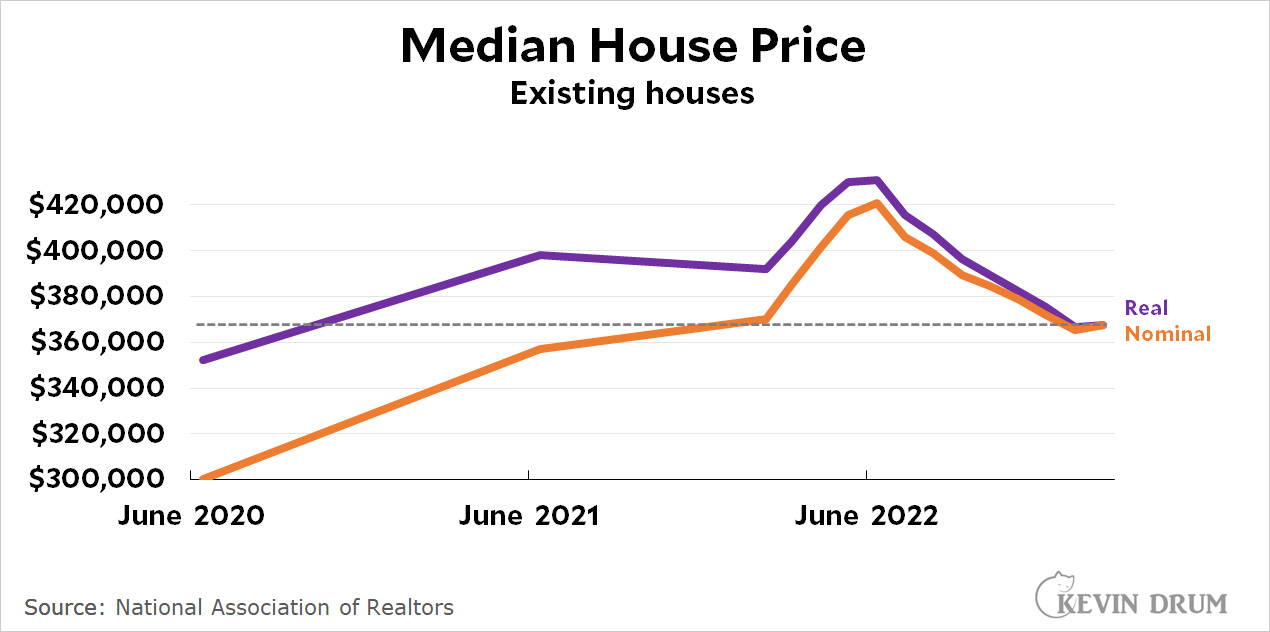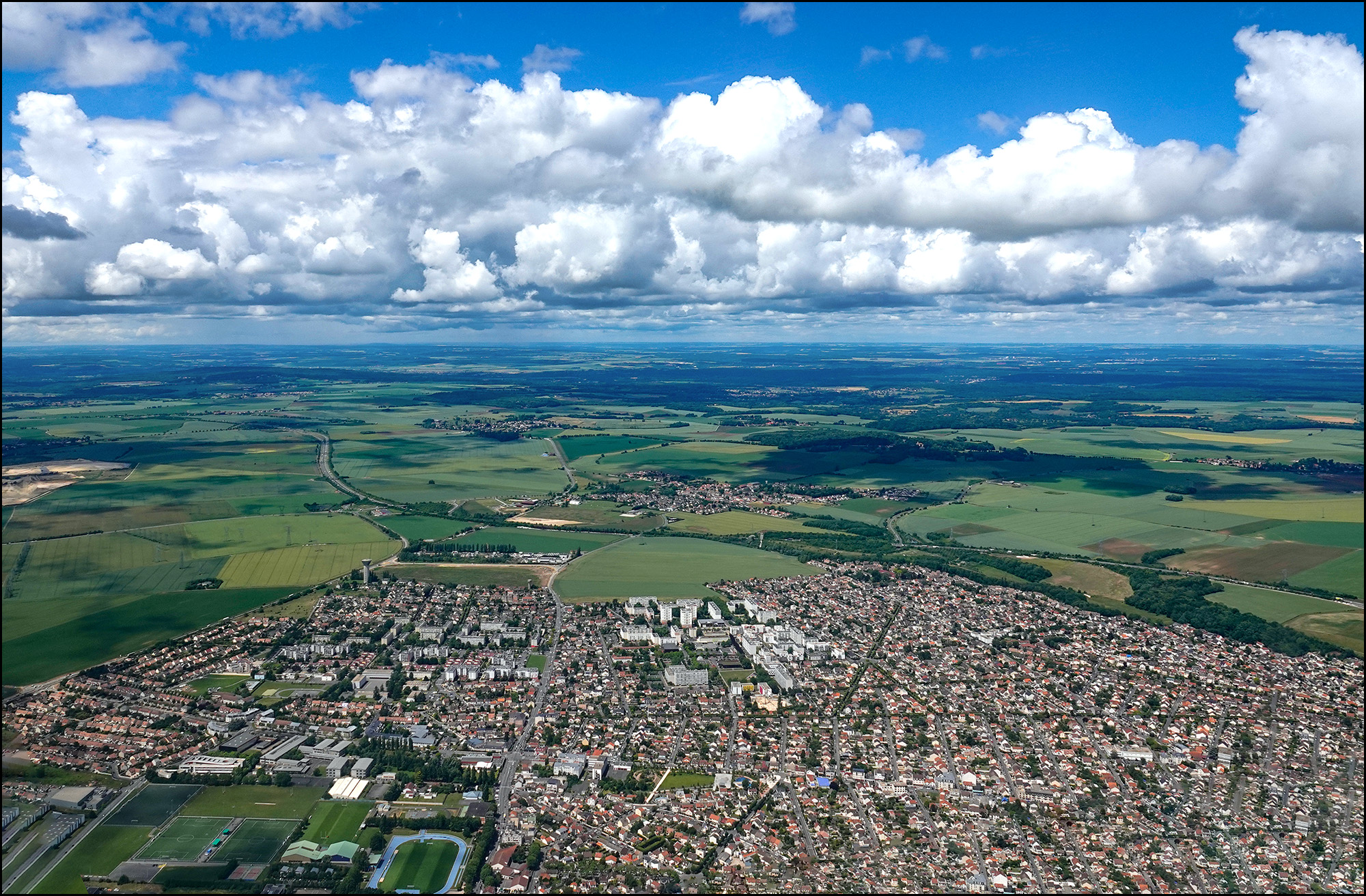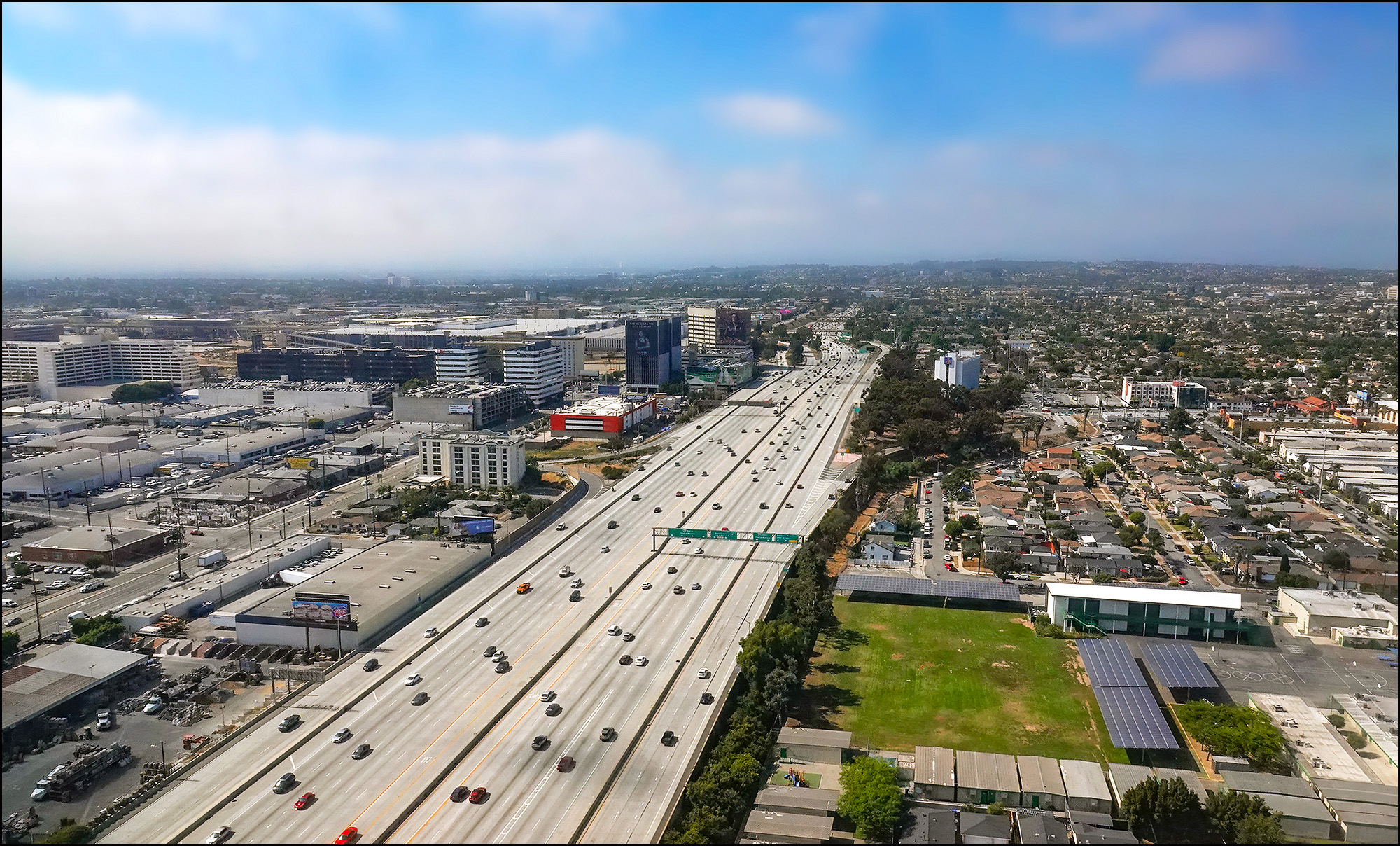Eric Levitz writes in New York about America's housing crisis:
The scale of our folly only becomes clear when the second-order effects of the housing crisis are brought into view. The most productive and economically vibrant parts of the U.S. are also the places where housing supply has lagged most egregiously behind demand....According to one 2019 study from economists at the University of Chicago and UC Berkeley, if New York City, San Jose, and San Francisco loosened zoning restrictions that forbid high-density housing construction, America’s total gross domestic product would increase by 9 percent. Put differently, average annual earnings in the U.S. would rise by roughly $8,755.
If we merely loosened zoning restrictions in two places, average pay nationwide would increase $8,755? That seems a little unlikely.
More generally, I'm very, very skeptical of this whole notion that increasing the population of our biggest cities would automatically turbocharge the economy. After all, Africa, Asia, and South America are chock full of megacities, but it's Europe, Australia, and North America that are the economic leaders of the world.
So let's take a look at this. For starters, here are quotes from a couple of papers about the productivity advantages of big cities:
In line with the previous literature, the analysis confirms that city productivity tends to increase with city size; doubling city size is found to be associated with an increase in productivity of between two and five percent.
The metropolitan labor market—defined as the actual number of jobs in the metropolitan area reached in less than a 1-hour commute—is almost twice in size in a U.S. city with a workforce twice the size.
The first paper tells us that we can get a ~3% productivity increase if we double the size of our biggest cities. Double! The second one says that if we increase density by 2x, the number of jobs increases less than 2x.
Color me less than impressed. A stretch goal for upsizing our cities would be in the vicinity of 20% growth. That might—might—produce a 0.7% increase in productivity. That's not even measurable. And the price to pay is fewer jobs per worker.
Besides, what accounts for the increase of productivity in cities? The usual answer is tight linkages, sharing of information, ease of changing jobs, etc. But I'll put my money on something else. Here's a hint:
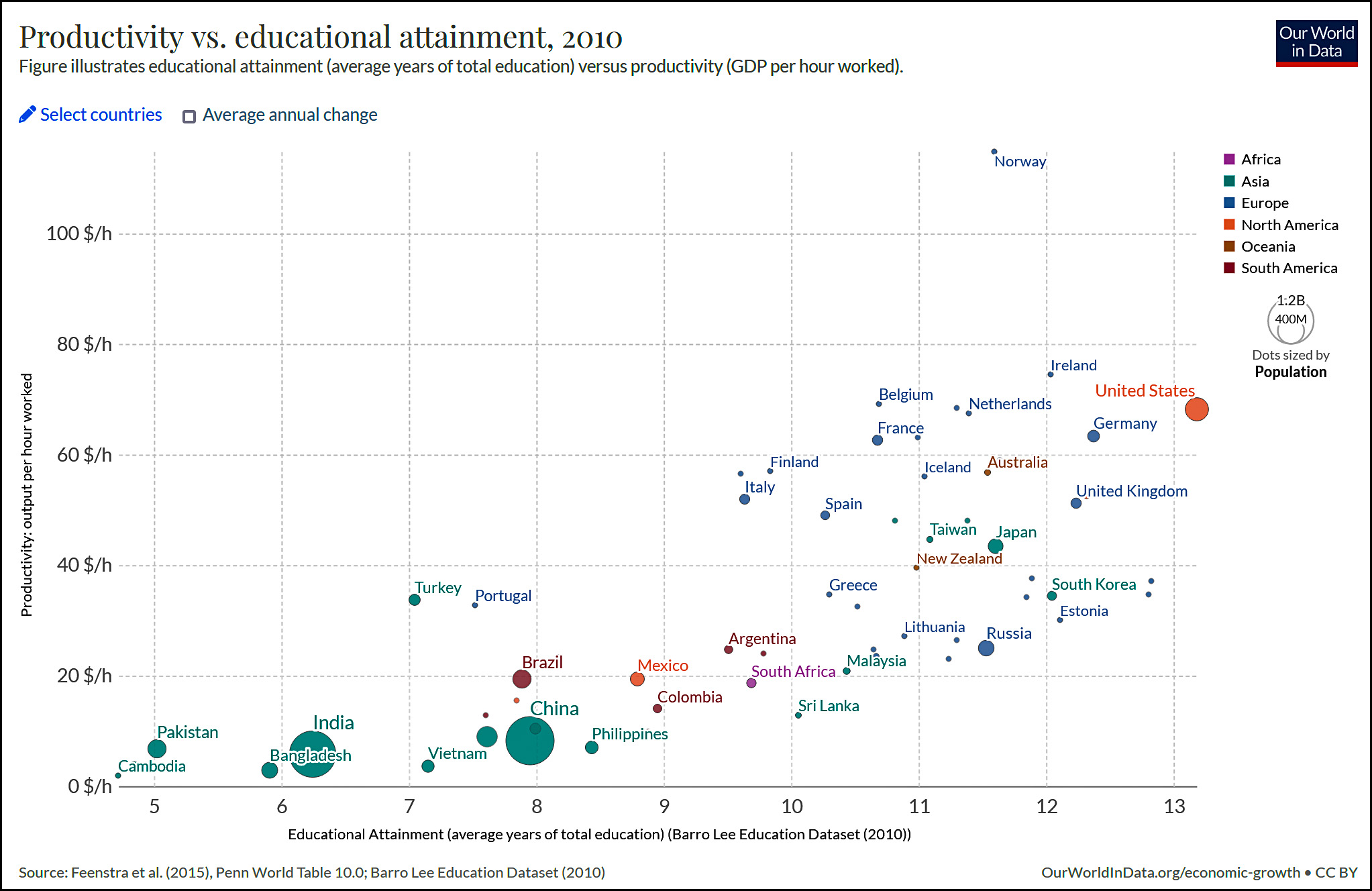 Worldwide, productivity is strongly correlated to education. Here's the United States:
Worldwide, productivity is strongly correlated to education. Here's the United States:
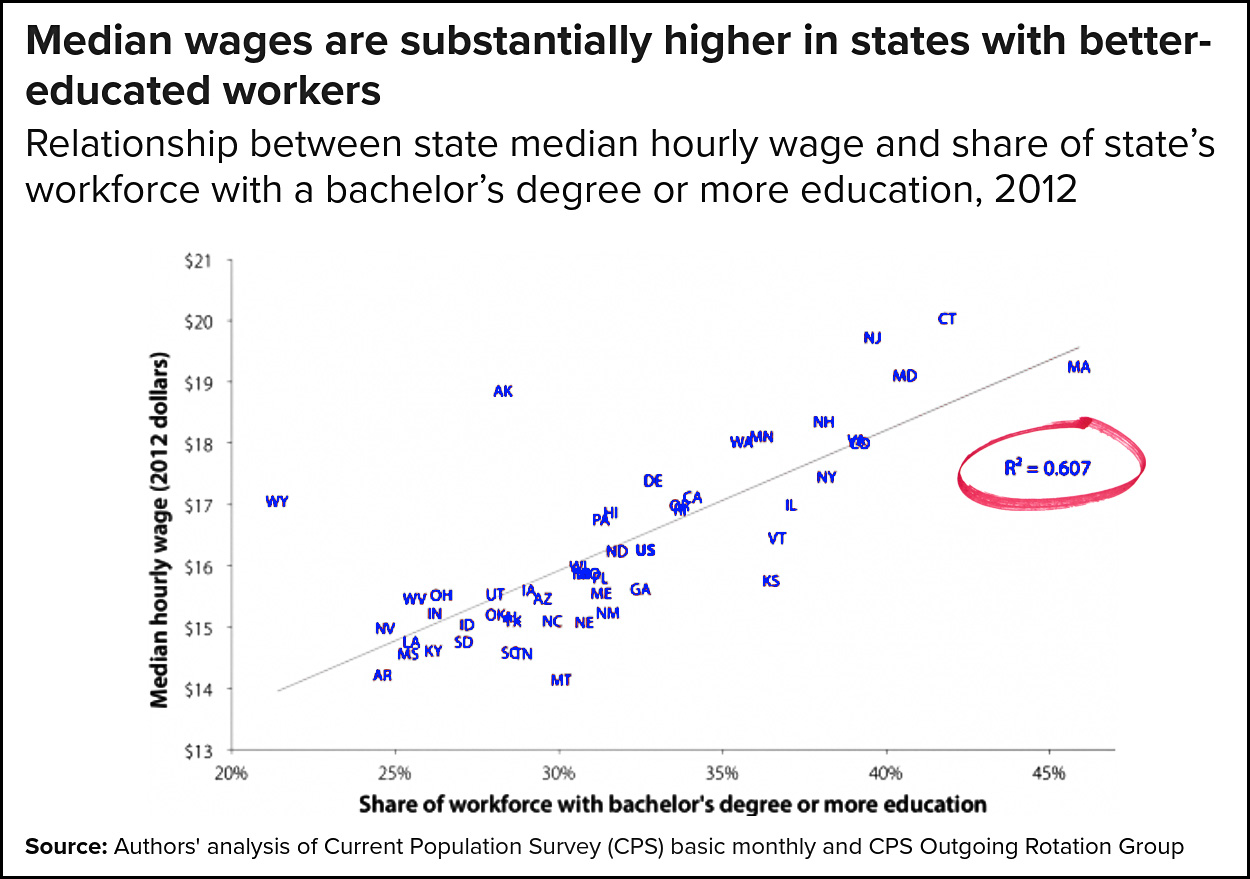 This chart comes from the lefties at EPI and it shows the same thing: productivity is very strongly linked to education. Now here's the education level in urban vs. rural areas:
This chart comes from the lefties at EPI and it shows the same thing: productivity is very strongly linked to education. Now here's the education level in urban vs. rural areas:
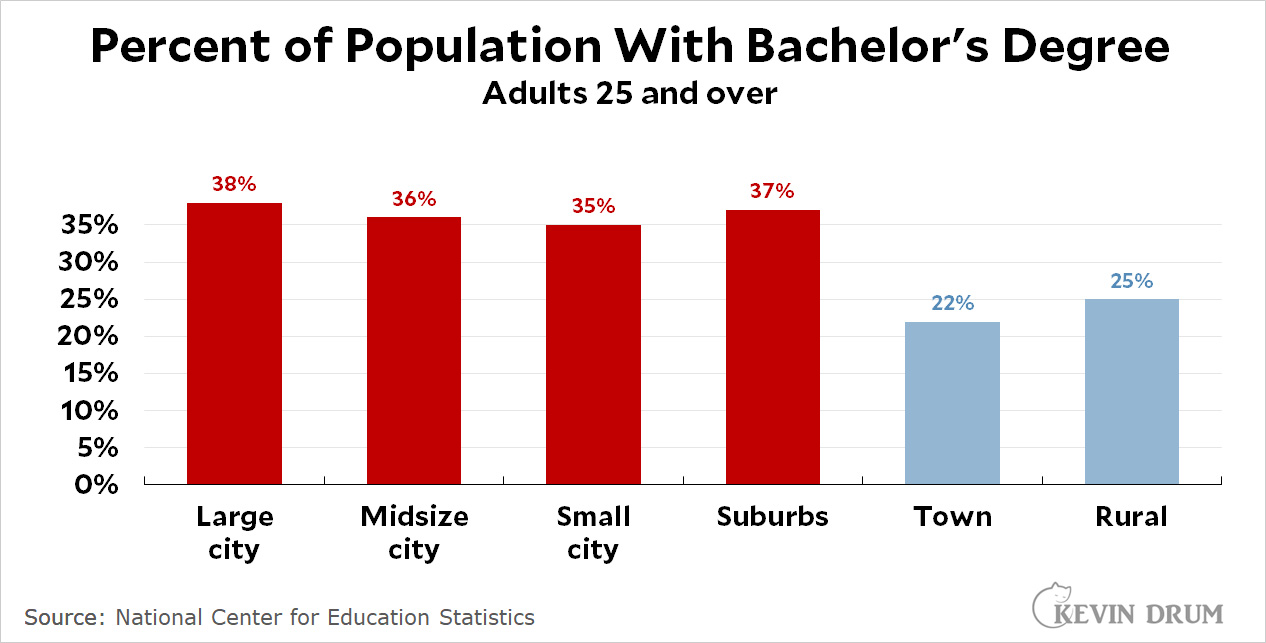 The big difference is not between big and small cities, or between cities and suburbs. They're all about the same. The difference is between urban and rural.
The big difference is not between big and small cities, or between cities and suburbs. They're all about the same. The difference is between urban and rural.
This is all just a scattering of data, not any kind of rigorous study. Still, the conclusion is pretty obvious and also pretty reasonable: the real productivity booster is education. Cities aren't more productive because they're denser, they're more productive because it's where college-educated folks live. Increasing the size of big cities is unlikely to increase productivity at all unless you make sure to attract an outsized number of people with college degrees. This, of course, would make our rural areas even worse off.
The more obvious solution, if you really care about productivity and economic growth, is to try to increase the educational level of towns and rural areas. That's no easy task, but then again, neither is fighting endless bloody battles with city residents over every half percentage point in increased density.
POSTSCRIPT: On another point, I do wish that people would stop saying that "the US" has a housing shortage of 4 million or 5 million or whatever. The right way to put it is that California has a housing shortage of 4 or 5 million and everyone else is in roughly decent shape.
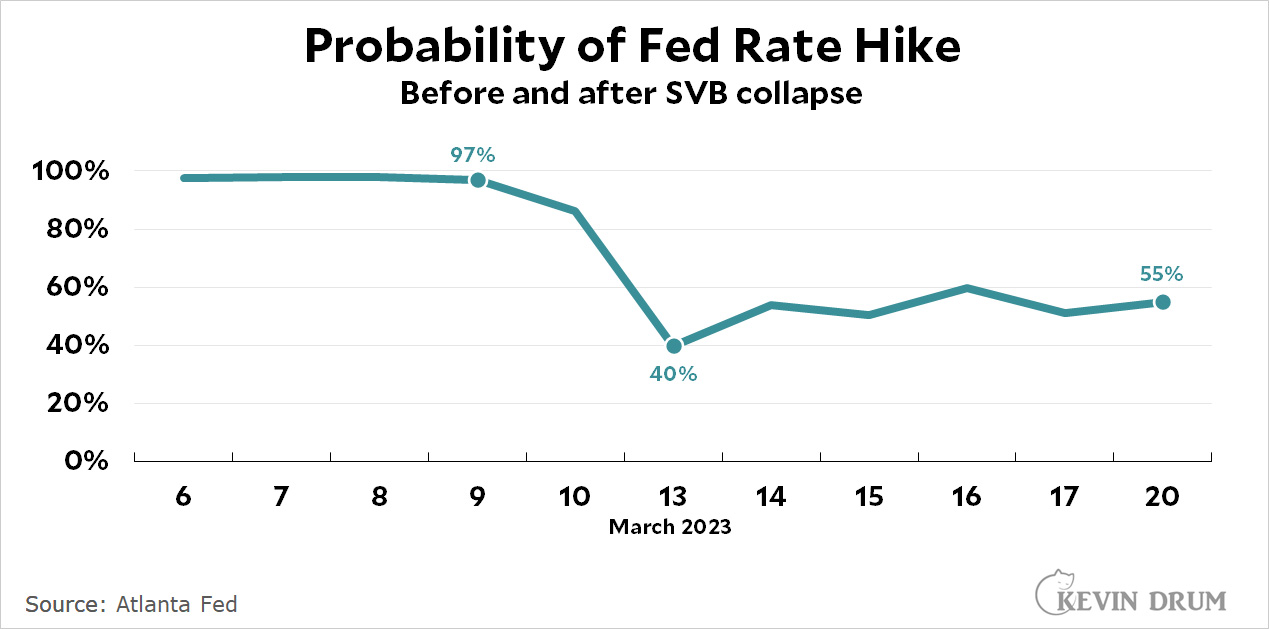 Before the collapse of Silicon Valley Bank, the probability of a rate hike was 97%, a virtual certainty. After the collapse, that probability dropped to 40% and currently stands at 55%.
Before the collapse of Silicon Valley Bank, the probability of a rate hike was 97%, a virtual certainty. After the collapse, that probability dropped to 40% and currently stands at 55%.

